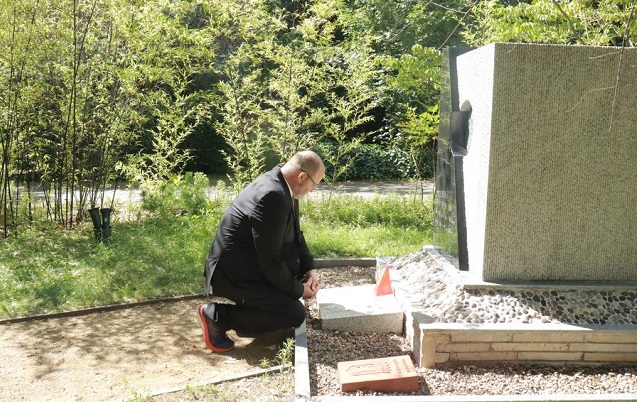
BERLIN, CHINA | Xinhua | Remembering is more than an act of reflection but a responsibility, said Christoph Reinhardt, the great-grandson of John Rabe, a German remembered for protecting hundreds of thousands of Chinese civilians during the Nanjing Massacre in 1937.
“If we lose touch with the past, we lose the ability to grow from it,” 62-year-old Reinhardt told Xinhua in a recent interview, depicting historical memory as a shield against future violence.
On Dec. 13, 1937, the Japanese Imperial Army captured Nanjing. Invaders then carried out mass killings, sexual violence and other atrocities, resulting in the deaths of approximately 300,000 Chinese civilians and unarmed soldiers over six weeks. The Nanjing Massacre remains one of the most barbaric episodes of World War II.
Rabe, then a Siemens representative in Nanjing, organized an international safety zone with the help of other foreigners, saving about 250,000 Chinese people between 1937 and 1938. Amid the massacre, he continued to keep a diary, which later became one of the most comprehensive historical records of the atrocities committed by the Japanese aggressors.
Reinhardt recalled a diary entry that still haunts him — Rabe pleaded with Japanese forces to bury a corpse left on a metal bedframe in Nanjing’s Xinjiekou Square. Days passed as the body rotted and was gnawed by animals, yet burial was repeatedly denied.
“How can anyone become so numb as to feel nothing for the dead?” Reinhardt asked.
Yet the diaries record not only horror, but also hope, Rabe’s great-grandson noted. “Faced with armed soldiers trained to kill, rape, loot and destroy, Rabe and his companions stood unarmed and protected the people of Nanjing.”
“In the midst of war, they preserved what little remained of human conscience,” said Reinhardt.
For Reinhardt, the Rabe family’s ties to China go beyond Nanjing. His mother, Rabe’s granddaughter, was born in Shenyang, capital of northeast China’s Liaoning Province, on May 11, 1931. Months later, a Japanese-planted bomb blew up the nearby railway, sparking the Mukden Incident. “It shattered not only the track, but the lives of countless civilians, including my own family,” said Reinhardt.
“My mother grew up with war and displacement,” he said. Decades later, his mother wrote in her diary that she felt deeply grateful to have raised her children in a time without war, a quiet privilege she herself never had.
On his multiple visits to China, Reinhardt said each of them leaves him deeply moved by the profound respect the Chinese people continue to hold for Rabe.
As Rabe’s descendant, Reinhardt has long felt bound to preserve his great-grandfather’s legacy. In November 2017, he donated Rabe’s personal belongings to the Chinese Embassy in Berlin. One month later, he saw them again on display at the Memorial Hall of the Victims in Nanjing Massacre by Japanese Invaders.
“These objects don’t belong in a private home. They belong to history, to a place where they can be remembered by all who know the historical context,” he said.
“Preserving memory and passing it on is a responsibility our generation cannot shirk,” Reinhardt said. “Only then will history not be forgotten. And only then can civilization move forward.”■
 The Independent Uganda: You get the Truth we Pay the Price
The Independent Uganda: You get the Truth we Pay the Price



